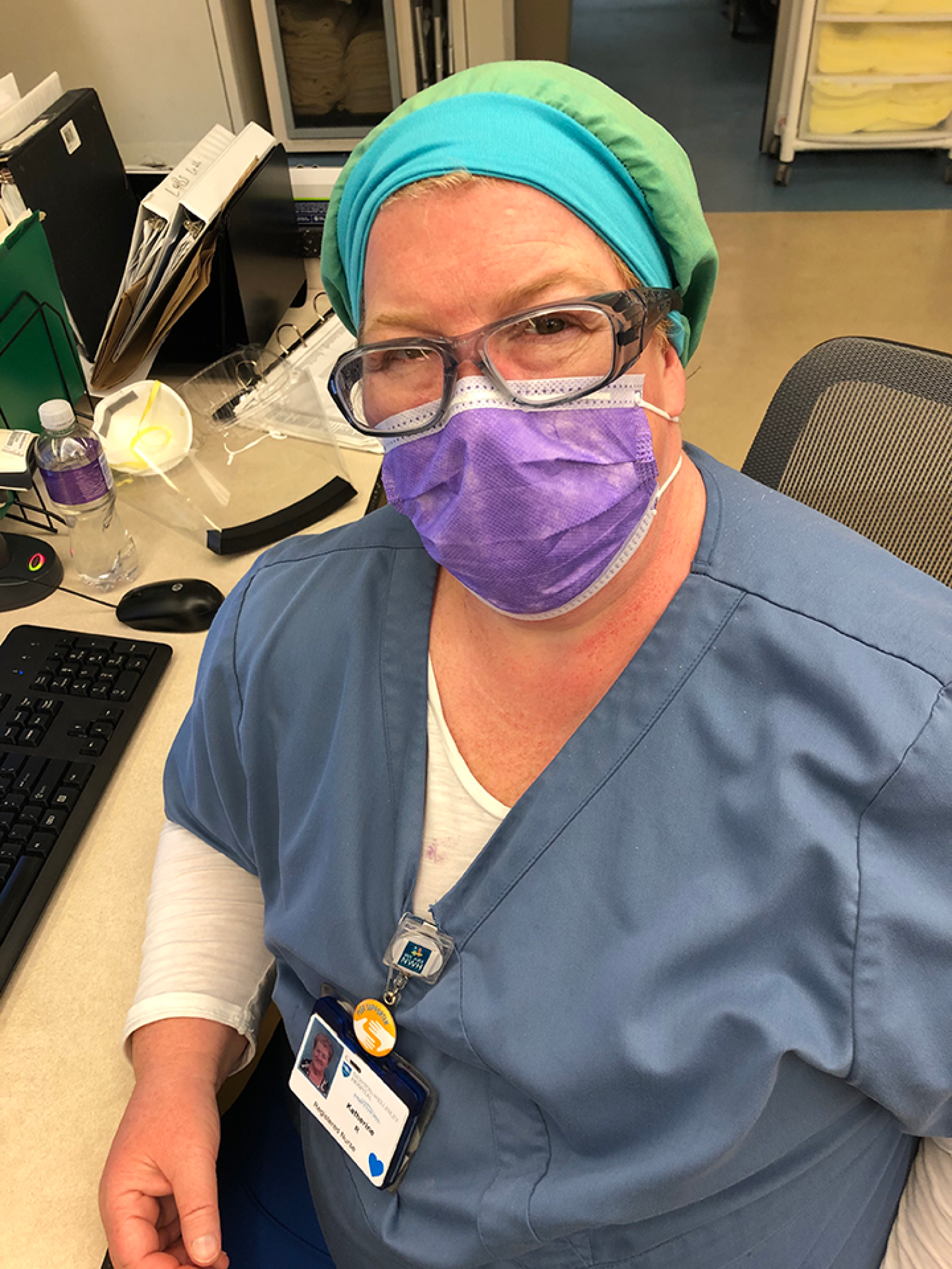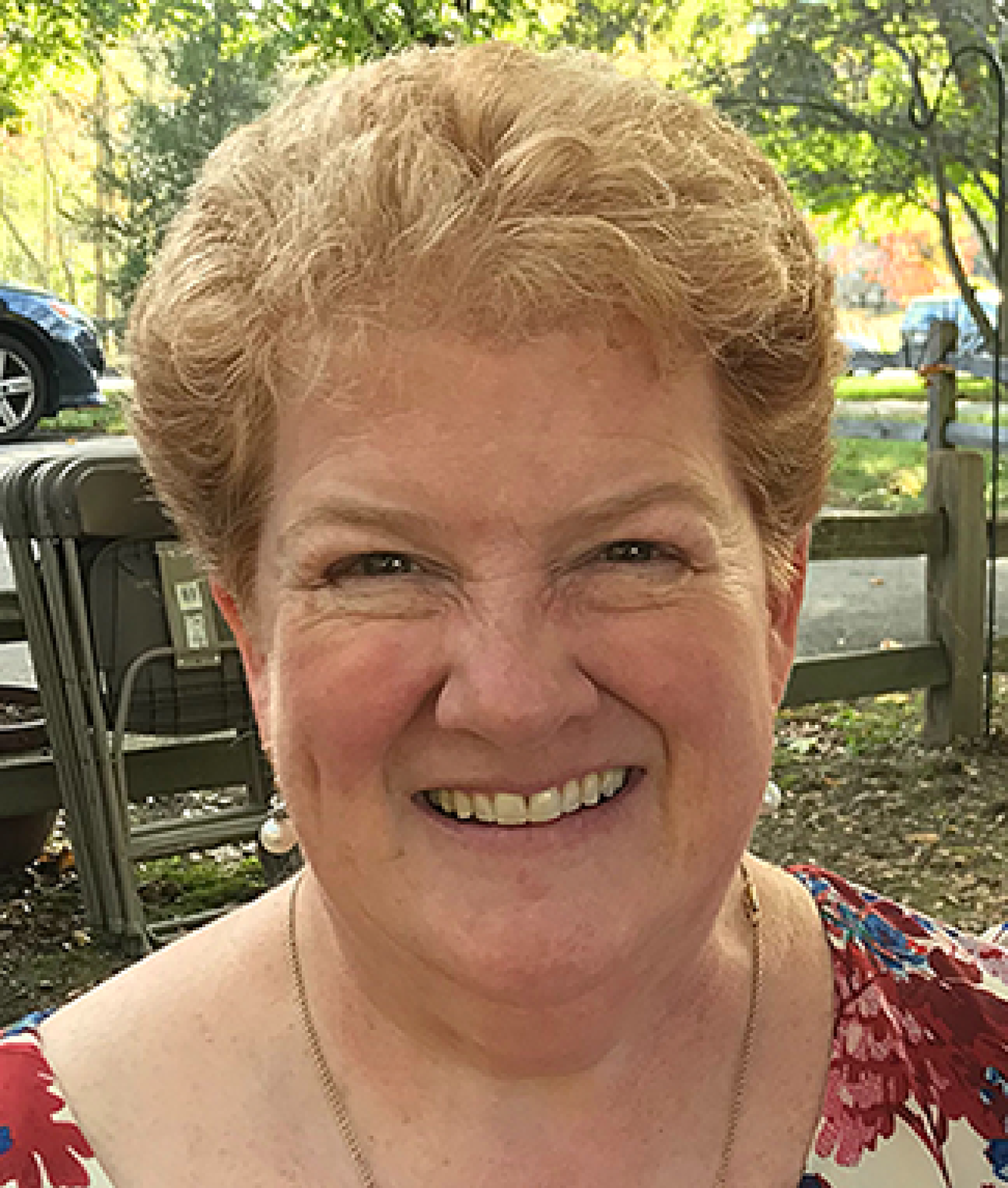ED colleagues get together for COVID-19 support

Kathy Reda, RN, BSN, has been a nurse at Newton-Wellesley Hospital for 30 years and has worked in the emergency department there since 1995. She was chosen by her ED coworkers last year to be part of a small group trained to help meet the emotional needs of clinicians and staff involved in patient harm events or unexpected medical outcomes. In March, as COVID-19 increased pressure on the ED, Reda organized drop-in peer support for all ED staff members.
What prompted you to begin the drop-in sessions?
Kathy Reda: Under normal circumstances peer support is a perfect fit for the fast-paced environment of the ED. Once we started seeing a lot of coronavirus patients, we knew we had a special need. The whole department felt it: This is real, and it's going to be scary. People are dying. We all have to gown and glove and mask and face shield before going into any room. At home, we undress in the garage and worry about infecting our loved ones. There are so many unknowns in this fluid environment. It became evident very quickly that we wanted to be able to gather together in a safe place even if just for 10 minutes.
How did your colleagues react? What have the sessions been like?
Kathy Reda: The first time we offered a drop-in session, just a few people came — a couple of nurses, a secretary and a physicians’ assistant. Then word got out, and more people came to the next one — physicians, techs, many nurses and someone from registration.
We have found you might not know what’s really going on for someone while you’re working next to them. When we get together and someone says, “That frightened me,” or, “I am afraid to go home,” and someone else says, “I feel the same way,” we all feel better. It helps decrease anxiety to know we’re not in this alone.
We don’t take attendance, we don’t take notes, and people can come and go as they please. We’re trying to do this at least once a week for each shift. It’s very simple. We’re just offering a quiet, private space where people can say what they're feeling with no pressure.

What advice do you have for others who would like to do the same thing?
Kathy Reda: It doesn't take a lot to get started, but you do need someone to organize things. You need support from your management and a place to meet. Because no visitors are allowed in the hospital now, we’ve been able to use the family waiting room. Decide on a meeting time (between shifts has worked for us) and send an email out to your staff. Our sessions have lasted anywhere from 20 to 60 minutes. Food always helps, and it doesn’t have to be fancy.
You want someone to act as a greeter or facilitator for each drop-in session — someone who might begin things by sharing their own feelings and can monitor the flow of discussion. You want to tune in to the climate of the day and where people are, as best you can. Some people literally just pop in to take their mask off and have a snack. They're like, “I don't want to say anything. I'm just here for the food, Okay?” People are at different places in their experience. You don't want to pigeonhole anyone. Just allow them to be.
Things that used to cause anxiety are normal now. There are new worries, but once we get to work, get together with everyone and put on our PPE, we’re ready to go, just trying to help people. We see our coworkers now more than we see our families! We just need to find ways to support each other through this difficult time.
The Betsy Lehman Center’s website includes a curated list of resources to help health care providers cope with stress and other emotional impacts from the COVID-19 pandemic.